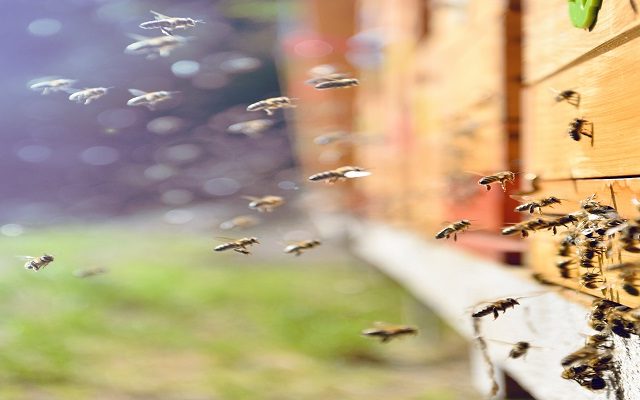Land Business Update | Week Commencing 8 July 2024
Change of government
Plans for farming and the countryside
We have summarised what we know about Labour’s policy on farming, food and the environment in the bulletin published on 5 July. The main points for England are:
- No big changes expected to farm or agri-environment policy.
- Commitment to current spending levels this year and will review future spending once public finances have been assessed.
- No plans to change Agricultural Property Relief.
- Will introduce a land use framework.
- No plans for a Scottish-style right to roam.
- Will introduce a new draft national planning policy and house building programme (see below for more details).
- Significant increase in renewable energy generation (4-fold increase in offshore wind by 2030, 3 x solar, 2 x onshore wind).
Ministerial team
Below are some of the key ministerial appointments that will affect property and the countryside. For farming, the team that was previously the shadow team at Defra has been appointed.
Environment, Food and Rural Affairs
- Steve Reed (Secretary of State)
- Daniel Zeichner (Minister, farming)
Housing, Communities and Local Government (renamed from Levelling Up, Housing and Communities)
- Angela Rayner (Secretary of State)
- Matthew Pennycook (Minister)
- Jim McMahon (Minister)
Energy Security and Net Zero
- Ed Miliband (Secretary of State)
- Sarah Jones (Minister)
- NB They will be supported by Chris Stark, the past chief executive of the Climate Change Committee, who has been asked to lead a new ‘control centre’ which will co-ordinate efforts across departments to build a clean electricity grid by 2030.
Transport
- Louise Haigh (Secretary of State, dealing with charging points and the market for electric cars)
We will produce a similar summary of possible policy and key appointments for Scotland in the next edition.
Planning system reform – the S&P view
Rachel Reeves used her first speech as the new Chancellor to announce a series of reforms to the planning system. Caroline McDade, our national head of planning, was written this commentary on what has already happened and what is likely to follow.
“Labour’s immediate focus will now turn to their first 100 days and planning is already featuring heavily in that programme. Indeed, the first stamp of change has been a renaming of the government department responsible for planning from Department for Levelling Up, Housing and Communities (DLUHC) back to its 2018 title of Ministry of Housing, Communities and Local Government (MHCLG) as well as a reconfirmation of manifesto commitments relating to planning.
During the rest of this month, we anticipate that a new draft National Planning Policy Framework (NPPF) will be published for consultation. This is likely to:
- reimpose targets to ensure councils are meeting local housing needs.
- strengthen the presumption in favour of sustainable development (the tilted balance).
- ensure local plans are up-to-date.
This is also likely to be supported by a letter to chief planning officers, which would be a material consideration, requiring them to ensure ‘universal’ coverage of local plans and to review Green Belt boundaries ‘regularly’ to meet housing targets, prioritise brownfield land and support for Grey Belt land to meet housebuilding targets.
The Chancellor, Rachel Reeves, has also announced the initial steps of a housebuilding programme, involving a new task force to unlock stalled housing sites including Northstowe and Worcester Parkway. She has referred to the need for private sector investment and for the sector as a whole to help with the programme although it will only be achievable with significant government support for new affordable homes.
Labour’s initial programme will also see a recruitment drive for 300 planning officers, to help resource local planning authorities. These policies are all aimed at Labour’s ambition to build 1.5 million homes over the course of the next parliament.
The spotlight was also on reforms aimed at delivering infrastructure today as Chancellor confirmed that the Secretary for State for MHCLG, Angela Rayner, will use her powers to recover more appeals where economic interests are at play – with two data centre appeals already being recovered by her department last weekend. We will see more in the coming weeks and months as new policy intentions for critical infrastructure such as wind and energy are set out, including updates to National Policy Statements.
Please contact Caroline if you would like to discuss any of the above.
Environment
Water companies likely to face legal challenges after Supreme Court ruling
The Supreme Court has ruled that landowners and individuals can seek action and damages for sewage released into waterways. In this case, The Manchester Ship Canal took action against United Utilities. Previously, the High Court and Court of Appeal ruled that only regulators could take action. Environmental groups have said that it could lead to thousands of claims by fishing clubs, swimmers and riparian owners against water companies.
Take part in the Big Butterfly Count from 12 July
The annual Big Butterfly Count runs until 4 August. It was started in 2010 by Butterfly Conservation to assess the health of the UK’s butterfly populations, which have decreased significantly since the 1970s, primarily due to habitat loss. Almost 95,000 took part in last year’s survey. It is fun to do, takes 15 minutes and you can upload your sightings through the very user-friendly app.
It’s Bees’ Needs Week!
Defra and other organisations work together to raise awareness of the importance of pollinators. Their blog lists some simple actions everyone can take to support pollinators near you:
- Grow more nectar rich flowers, shrubs and trees.
- Let patches of land grow wild (and cut grass less often).
- Do not disturb insect nests and hibernation spots. This means leaving longer grass, hedgerows, trees and dead wood.
- Reduce pesticide use where possible and use integrated pest management to reduce the need for pesticides.
Farming
Environmental watchdog to investigate Defra’s emergency approval of neonicotinoid pesticide
The Office for Environmental Protection has started an investigation into whether Defra followed the correct process when issuing the authorisations in 2023 and 2024. The pesticide, Cruiser SB, is used as a sugar beet seed dressing and is highly toxic to bees. Conservative ministers authorised the pesticide for use this year, against the warnings of scientific advisers. It was also authorised in every year since leaving the EU, despite former environment secretary Michael Gove promising in 2017 that ministers would use Brexit to stop the use of the pesticide. The Labour Party manifesto includes a commitment to end the authorisations because of its effect on pollinators.
Property and rural economy
Scotland’s grouse shooting licensing scheme to launch on 15 July
The scheme, which is administered by NatureScot, requires applicants to provide their contact details (name, address and contact details) and details of the landholding (map showing the extent and a grid reference). Licence holders will be expected to comply with the terms of their licences and the grouse moor management code of practice (draft version here).
Homes for Nature voluntary commitment from housebuilders
More than 20 housebuilders, who between them build around 90,000 homes a year, have signed up to this agreement. It will lead to a bird-nesting brick or box being installed for every new home built, as well as hedgehog highways as standard on every new development. The actions are in addition to any Biodiversity Net Gain (BNG) requirements.






